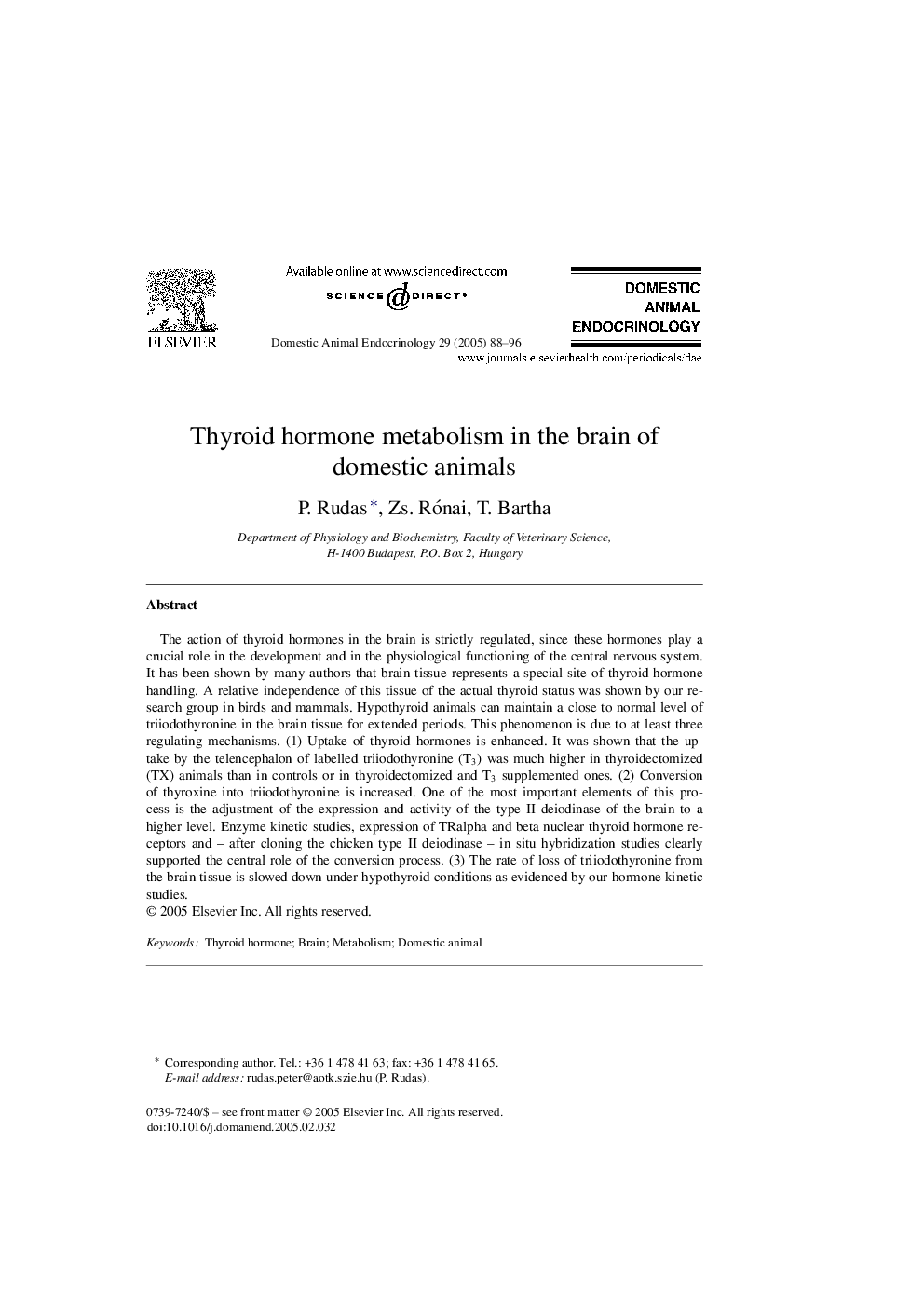| Article ID | Journal | Published Year | Pages | File Type |
|---|---|---|---|---|
| 8967294 | Domestic Animal Endocrinology | 2005 | 9 Pages |
Abstract
The action of thyroid hormones in the brain is strictly regulated, since these hormones play a crucial role in the development and in the physiological functioning of the central nervous system. It has been shown by many authors that brain tissue represents a special site of thyroid hormone handling. A relative independence of this tissue of the actual thyroid status was shown by our research group in birds and mammals. Hypothyroid animals can maintain a close to normal level of triiodothyronine in the brain tissue for extended periods. This phenomenon is due to at least three regulating mechanisms. (1) Uptake of thyroid hormones is enhanced. It was shown that the uptake by the telencephalon of labelled triiodothyronine (T3) was much higher in thyroidectomized (TX) animals than in controls or in thyroidectomized and T3 supplemented ones. (2) Conversion of thyroxine into triiodothyronine is increased. One of the most important elements of this process is the adjustment of the expression and activity of the type II deiodinase of the brain to a higher level. Enzyme kinetic studies, expression of TRalpha and beta nuclear thyroid hormone receptors and - after cloning the chicken type II deiodinase - in situ hybridization studies clearly supported the central role of the conversion process. (3) The rate of loss of triiodothyronine from the brain tissue is slowed down under hypothyroid conditions as evidenced by our hormone kinetic studies.
Related Topics
Life Sciences
Agricultural and Biological Sciences
Animal Science and Zoology
Authors
P. Rudas, Zs. Rónai, T. Bartha,
